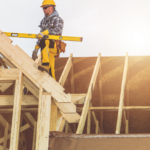The Pros and Cons of Green Materials and Solar Energy in Construction
The Pros and Cons of Green Materials and Solar Energy in Construction
As sustainability becomes a central focus in the construction industry, green materials and solar energy are gaining popularity for their environmental and economic benefits. However, adopting these sustainable practices also comes with certain challenges. Premier Development Texas is here to provide a comprehensive guide on the pros and cons of using green materials and solar energy in construction, helping you make informed decisions for your next project.
Green Materials in Construction
Green materials, also known as sustainable or eco-friendly materials, are chosen for their minimal environmental impact and energy efficiency. These materials are often recycled, renewable, or sourced from sustainable practices.
Pros of Green Materials:
- Environmental Benefits:
- Reduced Carbon Footprint: Green materials often require less energy to produce and generate fewer greenhouse gases.
- Sustainability: Using renewable resources like bamboo or recycled materials helps conserve natural resources and reduce waste.
- Energy Efficiency:
- Insulation: Materials like insulated concrete forms (ICFs) and green roofs provide excellent thermal insulation, reducing heating and cooling costs.
- Energy Savings: Energy-efficient materials can lower utility bills by enhancing the building’s overall energy performance.
- Healthier Living Environment:
- Low VOCs: Many green materials emit fewer volatile organic compounds (VOCs), improving indoor air quality and reducing health risks.
- Natural Light: Sustainable design often incorporates natural light, enhancing the well-being and comfort of occupants.
- Market Value:
- Increased Property Value: Homes and buildings constructed with green materials often have higher market values due to their energy efficiency and sustainability.
- Desirability: Eco-friendly buildings are becoming more attractive to buyers and tenants who prioritize sustainability.
Cons of Green Materials:
- Higher Initial Costs:
- Upfront Investment: Green materials can be more expensive initially, leading to higher upfront costs compared to traditional materials.
- Return on Investment: While long-term savings are possible, the initial financial outlay can be a barrier for some projects.
- Availability and Sourcing:
- Limited Availability: Some green materials may be less readily available, leading to longer lead times and potential supply chain issues.
- Sourcing Challenges: Ensuring materials are sourced sustainably and ethically can be complex and time-consuming.
- Technical Knowledge:
- Specialized Skills: Working with green materials may require specialized knowledge and skills, necessitating additional training for construction teams.
- Compatibility: Integrating green materials with existing building systems and practices can present challenges.
Solar Energy in Construction
Solar energy harnesses the power of the sun to generate electricity and heat, offering a renewable and sustainable energy source for buildings.
Pros of Solar Energy:
- Renewable Energy Source:
- Sustainability: Solar energy is a renewable resource, reducing reliance on fossil fuels and lowering carbon emissions.
- Energy Independence: Generating your own electricity provides energy independence and security.
- Cost Savings:
- Lower Utility Bills: Solar panels can significantly reduce or eliminate electricity bills by generating free, clean energy.
- Incentives: Various government incentives, tax credits, and rebates can offset the initial cost of solar installation.
- Environmental Impact:
- Reduced Emissions: Solar energy produces no greenhouse gas emissions during operation, contributing to a cleaner environment.
- Sustainable Development: Incorporating solar energy supports sustainable development goals and environmental stewardship.
- Increased Property Value:
- Market Appeal: Homes with solar panels are often more attractive to buyers and can sell at a premium.
- Future Proofing: Investing in solar technology can future-proof properties against rising energy costs.
Cons of Solar Energy:
- High Initial Costs:
- Installation Expense: The cost of purchasing and installing solar panels can be substantial, even with available incentives.
- Maintenance: Although minimal, regular maintenance and potential repairs add to the overall cost.
- Weather Dependence:
- Intermittent Energy Production: Solar energy production depends on sunlight, which can be inconsistent due to weather conditions and geographic location.
- Energy Storage: Storing solar energy for use during cloudy days or at night requires additional investment in battery systems.
- Space Requirements:
- Roof Space: Adequate roof space is necessary to install a sufficient number of panels to meet energy needs.
- Aesthetic Considerations: The appearance of solar panels may not appeal to everyone and can affect the aesthetic of the property.
- Regulatory and Technical Challenges:
- Permitting: Obtaining permits and navigating regulatory requirements can be time-consuming and complex.
- Grid Integration: Integrating solar systems with the existing electrical grid can present technical challenges and require additional infrastructure.
Conclusion
The use of green materials and solar energy in construction offers numerous benefits, from environmental sustainability to cost savings and increased property value. However, these advantages come with challenges, including higher initial costs, availability issues, and technical complexities. At Premier Development Texas, we are committed to helping our clients navigate these pros and cons to make informed decisions that align with their sustainability goals and project needs. Whether you are considering green materials, solar energy, or both, our expertise ensures successful implementation and long-term benefits.
External Links:
Contact Information:
For more information about sustainable construction practices or to discuss your project, please contact us at:
Premier Development Texas
1706 N Conway Ave, Mission, TX 78572
(956) 923-4007
premierdevelopmenttexas@gmail.com



